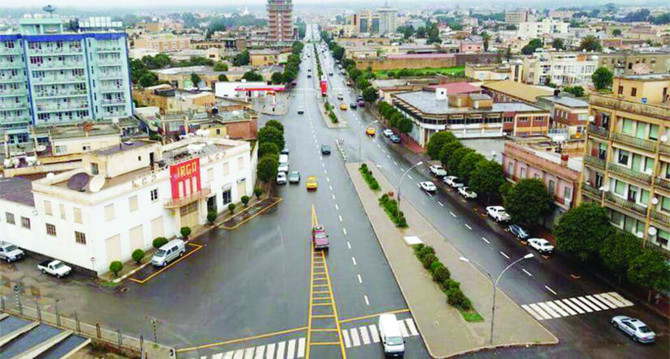Registering a company in Eritrea and opening an account with an Eritrean bank is an excellent opportunity to create and expand a medium to a large business in East Africa.
Eritrea is an independent state located in the eastern part of the African continent and washed by the waters of the Red Sea. Closest neighbors: Ethiopia, Sudan, and Djibouti.

Key sectors of the state’s economy: industry (footwear, textile, oil refining), handicraft industry, food industry (processing of fish and seafood, production of meat and dairy products, beverages), extraction of natural resources (copper, zinc, gold), agriculture (bananas, sesame, papaya, citrus).
The center of the state and the most populous city: Asmara. State languages: Arabic, Tigrinya, Italian, and English. The population of the country is over 5.6 million people. The state currency is Eritrean Nakfa (ERN). The country’s climate is sub-equatorial (desert / semi-desert). Participation in international organizations: COMESA, UN (WHO, ILO, IDA, IBRD, IAEA) Interpol, Group of 77, Non-Aligned Movement, FAO, ICAO, and others.
Benefits of Starting a Business in Eritrea
If you are interested in registering a company in Eritrea remotely, then we suggest that you study in detail the following business characteristics of this jurisdiction:
- Convenient geographical location;
- Smooth but steady economic growth;
- Stable development of transport infrastructure (the presence of large ports on one of the busiest shipping routes in the world);
- The presence of a free economic zone in Massawa;
- Ample opportunities for creating a business, as well as many attractive investment programs;
- Availability of available labor resources;
- Absence in the lists of offshore companies and blacklists of the OECD and the European Union;
- Flexible taxation system.
If you are planning to open a company in Eritrea, we advise you to give preference to business areas such as tourism, catering, hospitality, farming, mining, mechanical engineering, construction, IT technologies.
Important organizational and legal forms
Registration of a company in Africa is a relatively simple process that does not require a lot of time. To start a business in this jurisdiction, first, you need to choose a suitable form of economic activity:
- Private limited liability company (Private LLC);
- Public LLC;
- Free Zone Travel Company (FZ TC);
- Branch of a foreign company (B).
For those wishing to open a company in Eritrea remotely and issue a corporate account in Eritrea, we recommend giving their preference to such OPF, such as a private limited liability company (Private LLC) or a travel company of a free zone (FZ TC).
Registration Requirements
If you intend to register a company in Eritrea, then you will need to fulfill the following requirements of the Regulator:
- The unique name of the enterprise (mandatory indication at the end of the selected OPF);
- Number of directors: 1 or more;
- The number of shareholders – from 1 or more;
- Enterprise management: individuals / legal entities;
- Residence requirements: yes (shareholder, secretary);
- The presence of a secretary: yes;
- The authorized capital of the company (paid) – from 1,500 USD;
- Open account for a company in a bank in Eritrea: yes;
- Obtaining a permit to conduct commercial activities: required;
- Registered office and address: yes;
- Financial reporting and audit: yes.
Tax regime
Those who are going to register a company in Eritrea remotely should familiarize themselves in detail with the country’s tax system. The following taxes are provided for legal entities:
- The standard income tax rate is 30%. Oil companies pay tax at 35% and mining companies at 38%.
- Free Zone Travel Companies (FZ TC) are exempt from tax;
- Sales tax – 5%;
- Royalty tax – 10%;
- There is no tax on dividends and interest.
Terms of opening a business in Eritrea: from 21 days.
Resources
Salt mining, based on deposits in the Kobar shell, is a widespread activity in Eritrea; there is a salt plant next to the gate of Massawa. Granite, gold, copper, zinc, potassium, and basalt are also mined. Many other minerals have been found, including feldspar, gypsum, asbestos, mica, and sulfur. The Bisha gold mine in western Eritrea began operations in 2011 as a joint venture between a private Canadian company and the government of Eritrea. International rights groups have raised concerns about the well-being of workers at the mine, but the profitability of Bish’s project has sparked a wave of foreign investment in Eritrea’s mining sector. The proximity of the oil-rich Arabian Basin has sometimes prompted expectations of oil discoveries in Eritrea, but periodic exploration since Italian rule has not yielded results.







